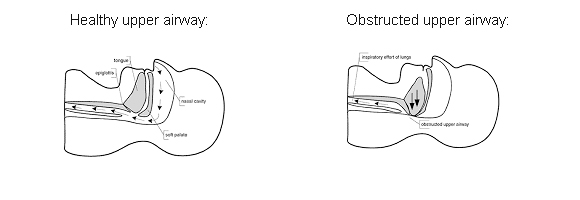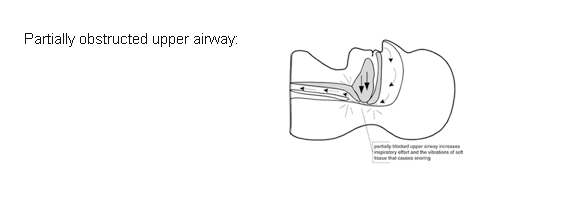Facilities - Take A Tour
Sleep Literature
National Institute of Neurological Disorders and Stroke
Brain Basics: Understanding Sleep
National Heart, Lung, and Blood Institute
In Brief: Your Guide to Healthy Sleep
Sleep Deprivation and Deficiency
National Center on Sleep Disorders Center
Sleep Disorder
A Sleep Study is a non-invasive procedure to monitor your sleep patterns and sleep behavior to determine if there are any abnormalities. Some of the more common disorders associated with sleep are Sleep Apnea (loss of breath while sleeping), Insomnia (difficulty initiating and maintaining sleep), Restless Leg Syndrome, Snoring, Narcolepsy (sudden attacks of sleep), etc.
Obstructive Sleep Apnea (OSA)
Obstructions occur during sleep for two primary reasons: lack of muscle tone and gravity. Excess tissue in the upper airway and anatomic abnormalities compound these factors. During sleep, especially in REM sleep, our bodies relax, and muscle tissues like the tongue and soft palate lose their slight rigidity. Because we tend to sleep lying down, gravity pulls these tissues toward the back of the throat and closes the upper airway.

Snoring – the symptom most commonly associated with OSA – happens when the upper airway becomes partially obstructed. As air moves through the limited space, it causes the soft tissues of the throat, uvula, and soft palate to vibrate. These vibrations create the sound we recognize as snoring

When these tissues obstruct the upper airway completely, they prevent breathing. They actually work to suffocate the sleeper. The sleeper wakes up enough to regain control of the upper airway, breathe again, and then fall back to sleep. This happens from dozens to hundreds of times per night for people with OSA, but they usually don't remember waking up.
Each obstruction deprives the body of oxygen and forces it to retain carbon dioxide that it would normally exhale. As a result, the body's blood gases get out of balance, and the body is subjected to a 'toxic' environment. When the body sets off 'alarms' that it needs to release the carbon dioxide, the brain wakes the sleeper, breathing resumes, and the individual falls back to sleep until the next obstruction occurs. These obstructions increase heart rate, raise blood pressure, and eventually blunt the body's automatic response system, resulting in increasingly more severe apneas and hypopneas.
The brief wake-ups that people with OSA experience also diminish their quality of sleep, resulting in sleep deprivation. The symptoms of sleep deprivation may be what bring most people with OSA to see their physician. Symptoms like excessive daytime sleepiness, poor concentration, poor memory, and even depression are common for people with OSA.
Sleep Disorders & Test



